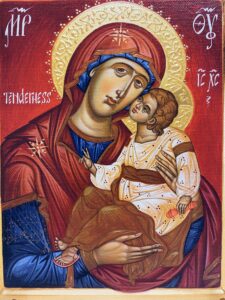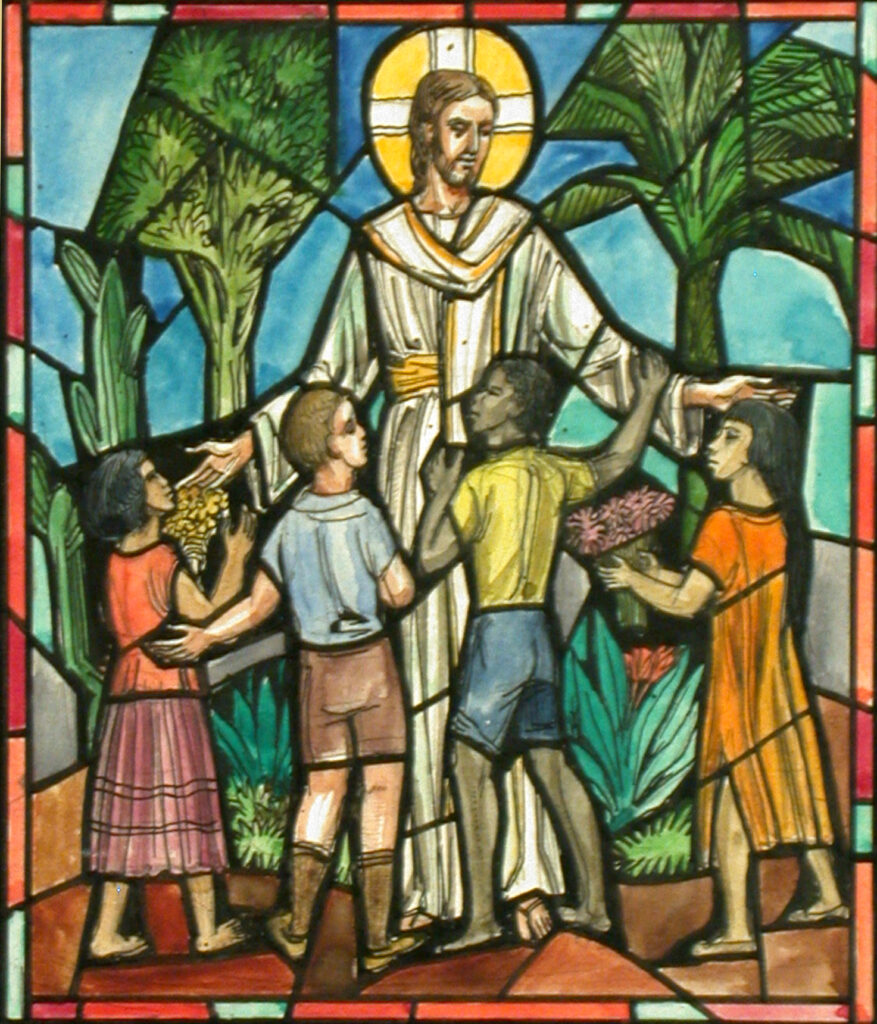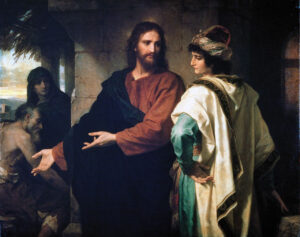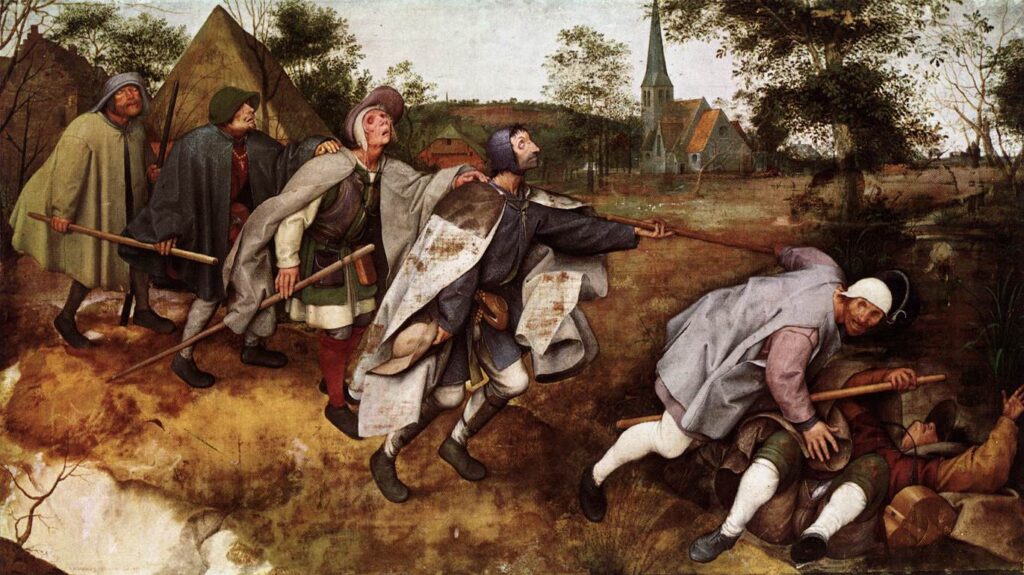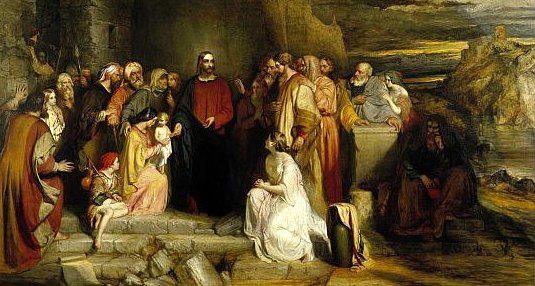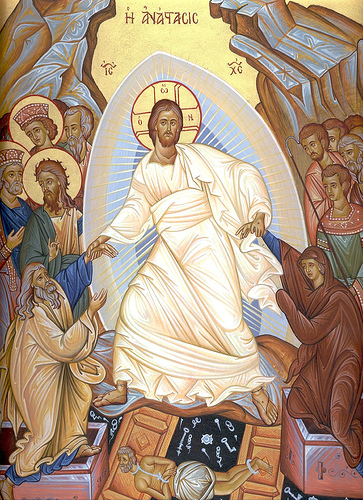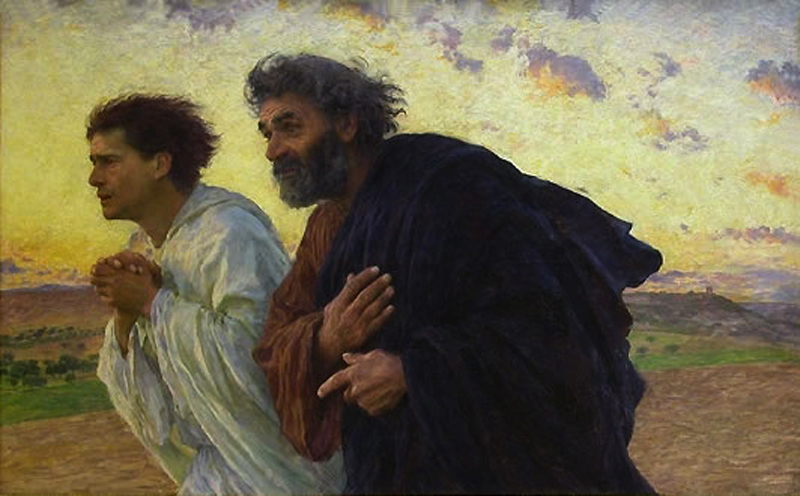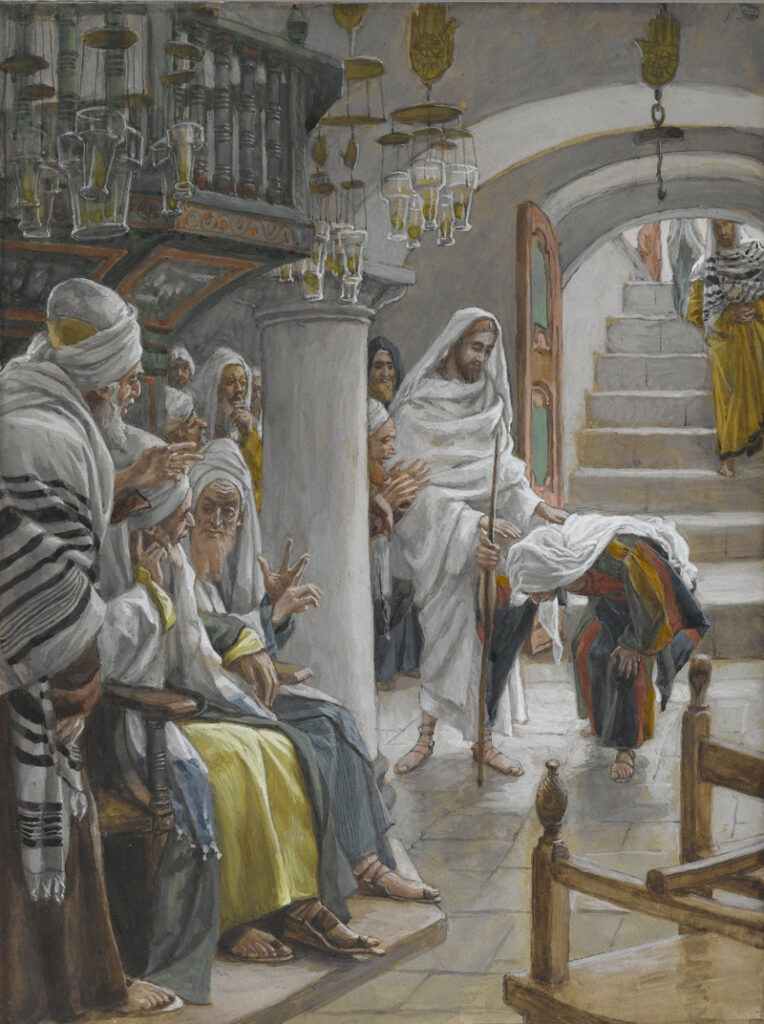Barekmor
Glory be to the Father, to the Son, and to the Holy Spirit
May the Lord bless you,
Who is the Evil One?
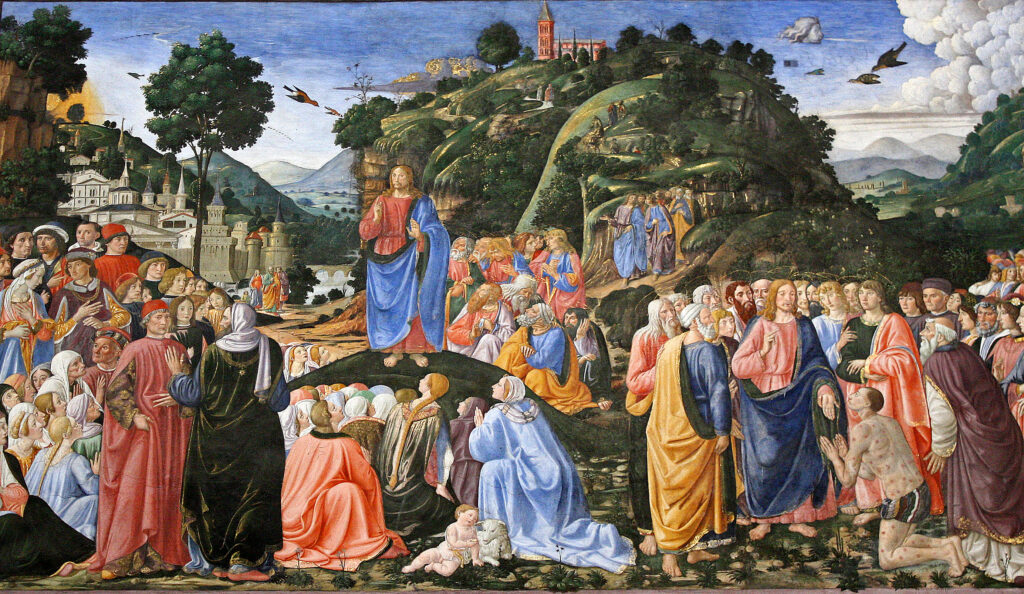
Our Saviour instructs us to love and forgive one another. Most of our translations, say something like do not resist the evildoer, evil man, evil person etc. While this is a grammatically correct possibility, it ignores the tradition of the Church. Christ is referring to the devil here who works through man and not our brother. St. John Chrysostom explains,
He did not say, resist not your brother, but the evil one, signifying that on his motion men dare so to act; and in this way relaxing and secretly removing most of our anger against the aggressor, by transferring the blame to another.1
The law teaches equal payment for offence. The purpose of the law was to make evil good. However, this injunction of returning evil for evil unfortunately caused the good to become evil.
If, however, following the mandate of Christ, we do not resist even if the evil ones are not harmed, still the good will remain good. Thus through the mandate of Christ, the mandate of the law is also fulfilled. For one who fulfills the mandate of the law does not at the same time fulfill that of Christ; but one who fulfills the mandate of Christ at the same time fulfills that of the law.2
Give to a Thief?
In the history of the church, there are examples of believers that have pursued after their robbers to give them what has been missed in the robbery. This has resulted in their repentance and conversion.
This idea is illustrated in Victor Hugo’s Les Misérables. Near the beginning the main character Jean Valjean robs an old bishop. He is shortly after apprehended and returned to the bishop to confirm that the goods he was caught with belong to the bishop. However, the bishop says no I gave them to him and chides him for forgetting the silver candlesticks when he left.
This act of mercy transforms Jean Valjean, and he becomes a man of compassion and mercy. He attempts to right all the wrongs that he encounters. In short, by the bishop turning the other cheek and giving what was not taken, Jean Valjean becomes a Christian and shares the love and mercy of Christ with others.
Do we Love our Neighbours or Possessions?
God’s desire is for us not to be profitable for ourselves only but also for our neighbours. He would have us possess all things in common that means both our goods and our bodies. These are to be shared with both those who are in need and also those who insult us. St. Gregory the Dialogist warns us that in the case of a robbery our fear and concern should be for those who rob us rather than for the inanimate objects that they take. If we don’t it will be evidence that we love our possessions more than our neighbours.
Giving up our physical possessions protects the clothing of the soul. One of the fathers states,
Just as Joseph lost his cloak in the hand of the prostitute and fled dressed with a better cloak, so throw your cloak into the hands of the slanderer and flee with the better covering of justice. If not, while you want to reclaim the clothes of the body, you may squander the most precious clothing of the soul. If the unbelievers see you, a Christian, repay injuries with worse injuries by worldly means and hammer earthly judgements against a lawless plunderer even to the destruction of your soul, how should they believe in reality of the hope of the heavenly kingdom that Christians preach?3
To take vengeance and to fight for our possessions has a twofold negative consequence. First for our ourselves, it endangers the clothing of our souls. Our protection is removed from us, and we are open to attack. Second, and it is hard to know which is the worse of the two, it causes unbelievers to doubt the reality of the heavenly kingdom. Our selfish way runs the risk of endangering the salvation of both our neighbours and us.
Loving Enemies is Beneficial?
One of the fathers explains why this command to love our enemies is beneficial for us. I can’t put it as well as he did but take a look what he wrote. At the beginning he is referring to earlier in the chapter.
We have seen how murder is born from anger and adultery from desire. In the same way, the hatred of an enemy is destroyed by the love of friendship. Suppose you have viewed a man as an enemy, yet after a while he has been swayed by your benevolence. You will then love him as a friend. I think that Christ ordered these things not so much for our enemies as for us: not because enemies are fit to be loved by others but because we are not fit to hate anyone. For hatred is the prodigy of dark places. Wherever, it resides, it sullies the beauty of sound sense. Therefore, not only does Christ order us to love our enemies for the sake of cherishing them but also for the sake of driving away from ourselves what is bad for us. The Mosaic law does not speak about physically hurting your enemy but about hating your enemy. But if you merely hate him, you have hurt yourself more in the spirit than you hurt him in the flesh. Perhaps you don’t harm him at all by hating him. But you surely tear yourself apart. If then you are benevolent to an enemy, you have rather spared yourself than him. And if you do him a kindness, you benefit yourself more than him.4
Not an Impossibility
One of the professors that I had at Bible School would often say, “God has created us to operate on love. When we don’t, it destroys our own health.” Refusing to love our enemies destroys us physically and spiritually. Several of the fathers faced the objection that loving our enemies was an impossibility. However, the fathers remind us that God doesn’t legislate impossibilities.
They point us to the examples of Stephen, Paul and Moses. St. Stephen showed the perfect love for enemies during his martyrdom when he kneeled and prayed for those who were stoning him. St. Paul suffered many things at the hands of the Jews but in his epistle to the Romans we see that still he prays for them. Through the time in the wilderness the Jews raged against St. Moses and yet we still see him interceding the Lord for them. Loving our enemies is the path that the saints have gone on before us and we must follow them.
Enemies as Benefactors
Furthermore, we bless them also because we consider them our benefactors. St. Theophylact of Ochrid informs us that anyone who persecutes us and puts us to the test will lighten the punishment that we will suffer for our sins. In fact, we will be able to bless them both now and at the judgement when we receive the great crown of our contest.
The fathers inform us that while simply loving our neighbours is not sin, it is not working justice either. We must love our enemies in order to do that. They explain,
It is half a good that one depart from evil and not pursue good. It is perfect, however, that one not only flee evil but also accomplish good. So he said, “Be perfect,” so that you might both love your friends on account of shunning evil and love your enemies on account of possessing justice. The former frees us from justice; the latter leads us into glory. For a representative of God is not perfect who does not resemble God through his or her works.5
St. Hilary of Poitiers explains that faith requires that our enemies to be cherished. Loving those who love you is just the normal course of life. Everyone does that. However, Christ calls us into something greater.
Application
We are as St. Paul writes living epistles. We may be the only place that unbelievers read of the life and love of Christ. It is our duty and responsibility to display his love to them. Let us purpose to do so.
- Let us remember that the individuals that do evil against us are our brothers. We must not condemn them for they are being controlled by the evil one. We must pray for them and bless them and desire that Christ’s salvation will reach to even them.
- Let us give more than has been taken from us. Our desire must not be for our possessions but for the repentance and salvation of the one doing the taking.
- St. John Chrysostom has 9 steps on the way to virtue through this instruction below.
For neither did He simply command to love, but to pray.
Seest thou how many steps He hath ascended, and how He hath set us on the very summit of virtue? Nay, mark it, numbering from the beginning. A first step is, not to begin with injustice: a second, after he hath begun, to vindicate one’s self by equal retaliation; a third, not to do unto him that is vexing us the same that one hath suffered, but to be quiet; a fourth, even to give one’s self up to suffer wrongfully; a fifth, to give up yet more than the other, who did the wrong, wishes; a sixth, not to hate him who hath done so; a seventh, even to love him; an eighth, to do him good also; a ninth, to entreat God Himself on his behalf. Seest thou, what height of self-command? Wherefore glorious too, as we see, is the reward which it hath.6
In the name of the Father, of the Son, and of the Holy Spirit
~ Fr. Matthew
Footnotes
Rosselli, Cosimo, 1439-1507. Sermon on the Mount, from Art in the Christian Tradition, a project of the Vanderbilt Divinity Library, Nashville, TN. https://diglib.library.vanderbilt.edu/act-imagelink.pl?RC=58320 [retrieved October 6, 2022]. Original source: https://www.flickr.com/photos/snarfel/4287572119.
1 https://catenabible.com/mt/5/38
2 Thomas C. Oden and Manlio Simonetti Editors, Ancient Christian Commentary on Scripture New Testament Ia (Downers Grove, IL: InterVarsity Press, 2001), 117
3 Ibid. 118
4 Ibid. 120
5 Ibid. 122
6 Philip Schaff, D.D., LL.D Editor, Nicene and Post-Nicene Fathers, First Series, Volume 10, Homilies on the Gospel of St. Matthew, originally published in the United States by the Christian Literature Publishing Company, 1880 (Peabody, MA: Hendrickson Publishing Marketing, LLC), 126


